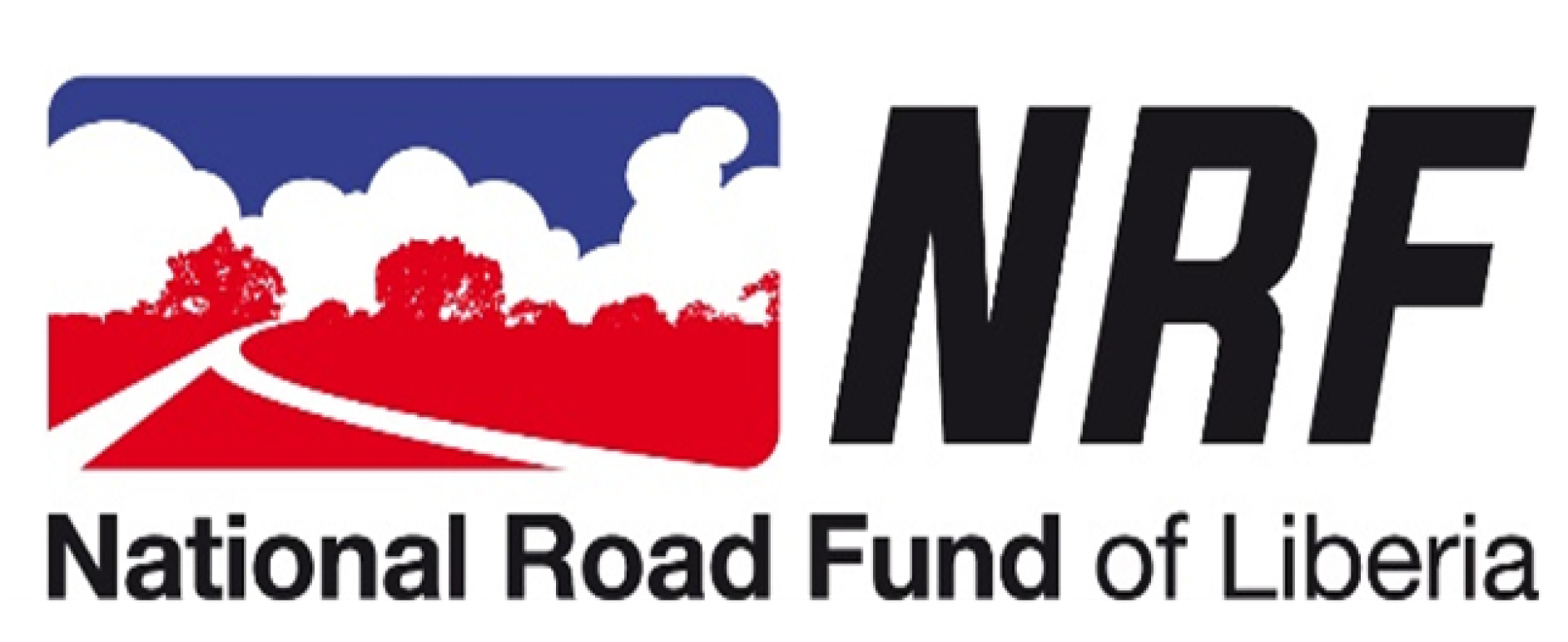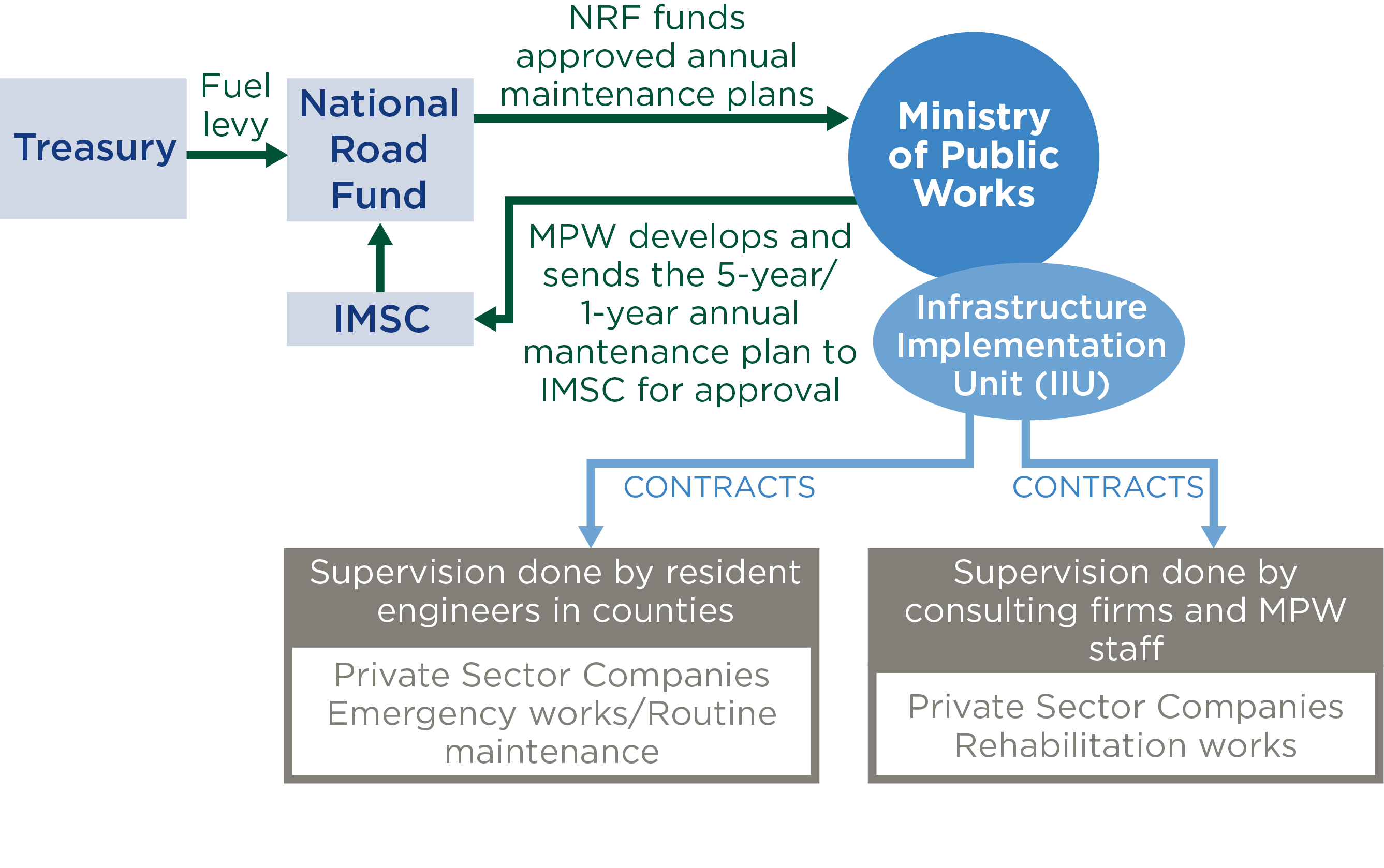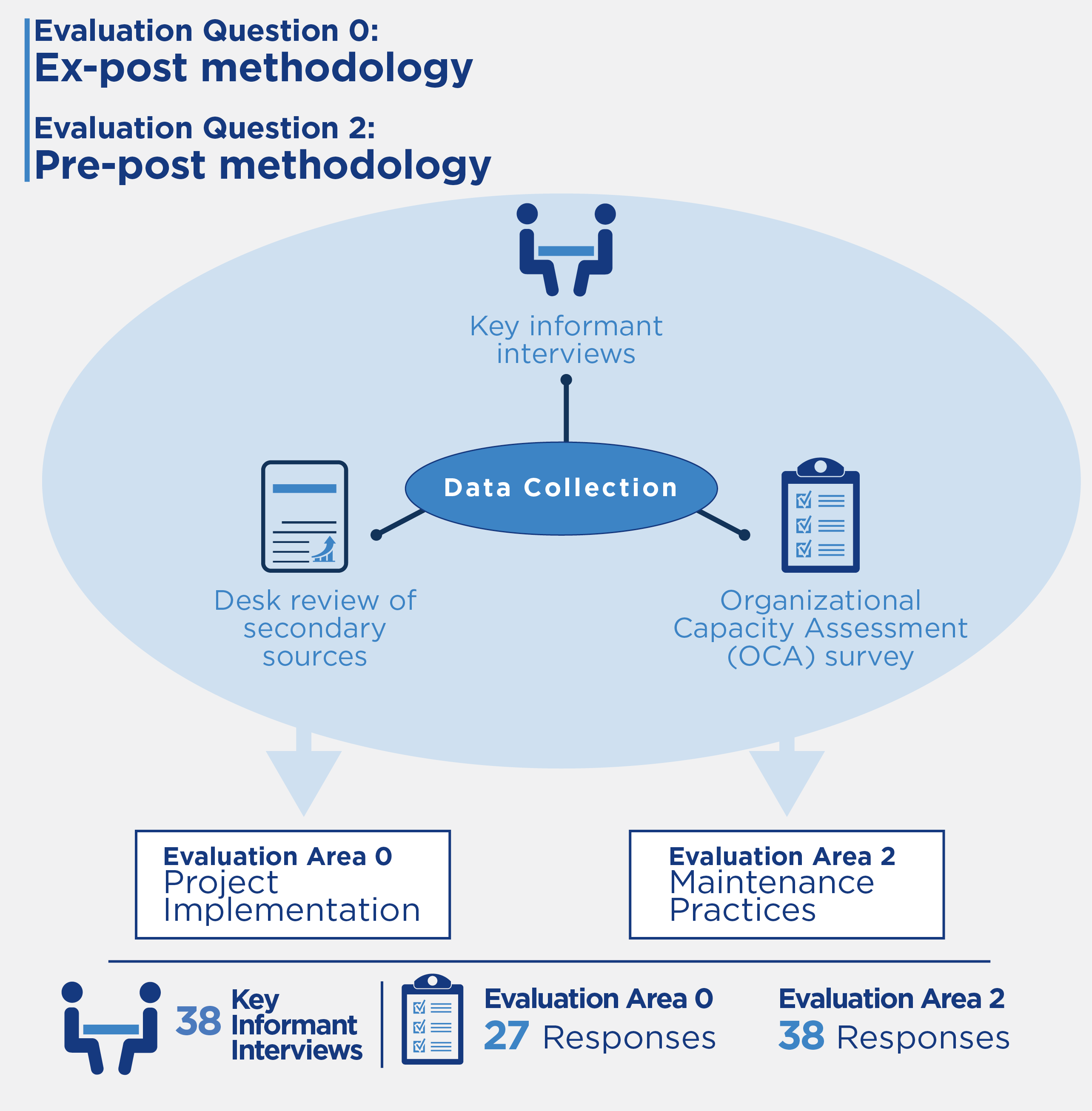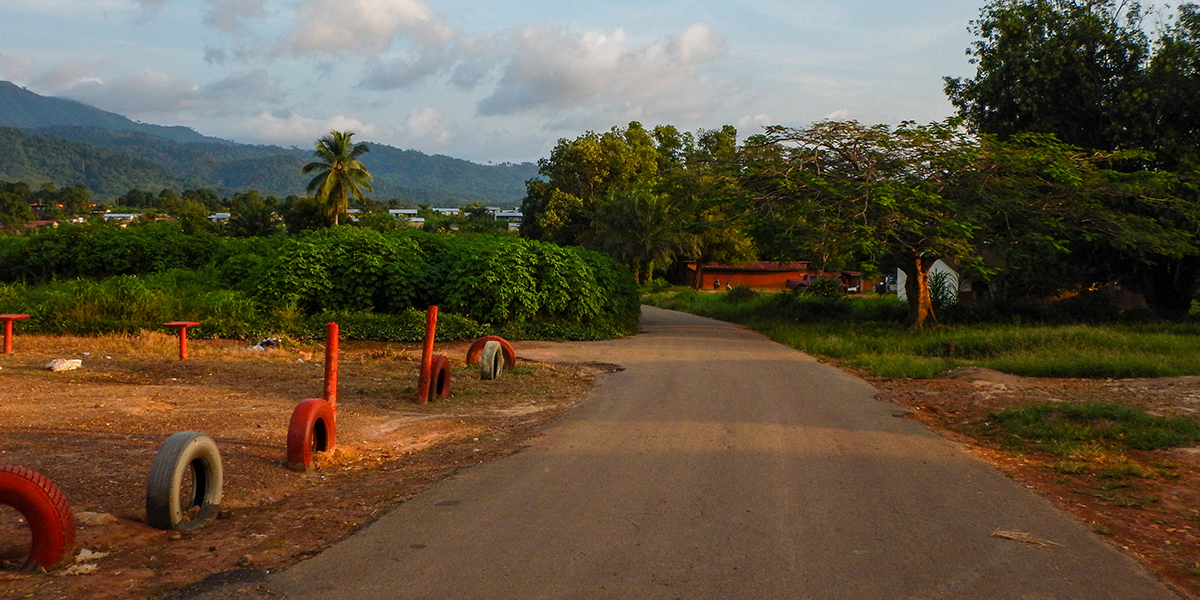Program Overview
MCC’s $257 million Liberia Compact (2016-2021) funded the $21 million Roads Project, which aimed to train key stakeholders in network analysis, data collection on road conditions, planning, and decision making related to road maintenance. The project provided a Road Asset Management System and technical support in the drafting of formal road maintenance plans, and emphasized the importance of data-driven road maintenance planning. The project was based on the theory that improved management of the roads sector would lead to improved quality and longer life of the road network in Liberia.
Evaluator Description
MCC commissioned International Development Group LLC to conduct an independent interim performance evaluation of the Liberia Roads Project. Full report results and learning: https://data.mcc.gov/evaluations/index.php/catalog/259.
Key Findings
Operationalization of National Road Fund
- The compact assisted Liberia in taking steps towards road sector reform. Liberia passed the National Road Fund Act in 2016 and operationalized the National Road Fund in 2018.
- The act that passed was different than what was originally planned, limiting the Road Fund’s scope by giving more influence over maintenance decisions to the government rather than road users. However, the Road Fund remains a key pillar of road sector reform.
Planning and execution of road maintenance
- Data-driven maintenance planning was incorporated into the Ministry of Public Works (MPW) activities. Policies and procedures related to maintenance planning are clearly written.
- Interim findings indicate that road maintenance planning and data collection improved.
Sustainability of new maintenance regime
Conditions precedents and project design
Evaluation Questions
This performance evaluation was designed to investigate both the road maintenance regime and implementation of the project by answering the following questions:
- 1
What are the relevant road authority’s maintenance practices? How have these changed since the beginning of the compact? - 2
How were routine, periodic and emergency maintenance works planned and executed by the Government before the compact and how are they planned and executed after the compact? Did planning and execution of routine, periodic and emergency road maintenance improve? - 3
What organizational, political, and economic factors are shaping road maintenance decisions and practices in Liberia? - 4
To what extent did the Project have a clear plan? Was it implemented according to plan? Where there any deviations from the original design?
Maintenance:
Project Planning and Implementation:
Detailed Findings
Operationalization of National Road Fund

Financing and Management of Roads After Compact Assistance (2020)
Prior to the compact, the Government’s approach to road maintenance decisions and practices was mostly reactive and characterized by ad-hoc emergency investments and there was no formal maintenance planning. The compact supported a key reform that reshaped road maintenance practices in Liberia by including the development and operationalization of a Road Fund as a Conditions Precedent, i.e. a required condition to MCC funding disbursements. This served as an incentive for the passage of the Road Fund Act, which was enacted by Parliament at the end of 2016 and became effective in January 2017. This provided a systematic approach to road maintenance planning and practice following the compact. The law, however, passed with significant modifications from the initial draft that limited its scope and resulted in a different road fund than initially intended. Despite the changes, including Inter-Ministerial Steering Committee (IMSC) involvement, the 40% road rehabilitation requirement, and indirect channeling of funding to the National Road Fund, the enactment of the National Road Fund Act and its operationalization in 2018 were major achievements.
Planning and execution of road maintenance
Prior to the compact, there was no formal or data-driven maintenance planning for Liberia’s national road network. Interim findings show that maintenance planning has improved due to the creation of the National Road Fund, training provided under the compact, and funds provided by the fund for data collection.

Financing and Management of Roads in 2020
Each year, the Road Maintenance Management Unit (RMMU) at the Ministry of Public Works (MPW) creates an updated five-year plan and an annual one-year plan to prioritize maintenance projects. The plan includes routine, emergency, and periodic work, allowing for road work to take place during the dry season, which starts in October/November.
Delays in approvals to the National Road Fund plans for the years 2019/2020 and 2020/2021 impacted procurement processes and delayed the awarding of contracts. It is not yet clear whether roads prioritized for maintenance received funds as intended as the evaluation team was not able to obtain the actual expenditure reports.
The tools MCC provided training on, such as HDM-4 (a software package used for the analysis, planning, management and appraisal of roads’ conditions), have improved capacity and provided a systematic approach to road maintenance planning. Participants in MCC trainings learned about data collection, recording, processing data in a database, and how to use this information to draft road maintenance plans.
Sustainability of new maintenance regime
Data collection capacity has been built in the Government of Liberia (GoL) and private sector. If the National Road Fund continues to provide funding, this capacity will endure. Data analysis and planning capacity have also been built at MPW, however, many of the staff trained in data analysis hold positions funded through a World Bank project. Once the World Bank Project concludes, these local staff may not accept Ministry of Public Works contracts paying significantly less. Staff may be retained if a Road Authority is created which pays higher wages than the Government of Liberia. Therefore, the creation of a Road Authority is crucial for sustainability of the new road regime.
Conditions precedents and project design
Conditions precedents, or required reforms for MCC funding disbursements, facilitated changes, but a premature project start, without proper planning and without having all aspects of the conditions fulfilled, hindered the implementation of a full cycle of periodic maintenance planning and implementation that the Roads Project sought to introduce. Therefore, the project was partially implemented according to the original plan. From an evaluator’s perspective, the project’s objective statement had too high a level of ambition given the designed activities, the limited amount of funding allocated (planned USD 21.07 million; 7% of the compact budget), and the medium-term duration of 5 years.
MCC Learning
When compacts begin implementation before proper due diligence work and project design have taken place, implementation and long-term sustainability are damaged.
The enforcement of Conditions Precedents is a necessary part of Compact implementation, even when the failure to meet such conditions may be connected to insufficiently planned projects.
Evaluation Methods

This performance evaluation used two methodologies. Evaluation Question 0 used an ex-post methodology, whereas Evaluation Question 2 used a pre-post methodology. Primary qualitative data collection included 38 key informant interviews (KIIs) conducted remotely with stakeholders in road maintenance and project planning. Primary quantitative data collection included an online Organizational Capacity Assessment (OCA) survey with 8 respondents. Primary data was collected in September-November 2020, an exposure period of 14 months. Secondary data included: project training assessments, project quarterly reports, Ministry of Public Works (MPW) road maintenance plans, approved National Road Fund expenditure plans, and other compact documentation.
Next Steps
This report presents baseline and interim results. In 2022, endline data collection will begin, with an endline report to follow.
2021-002-2566


